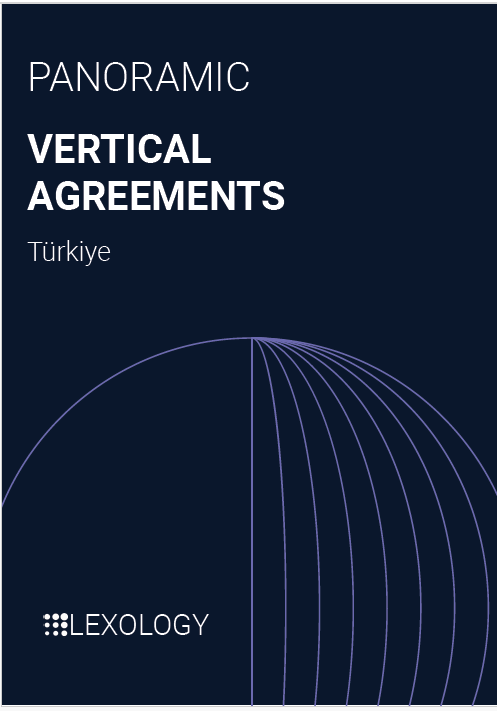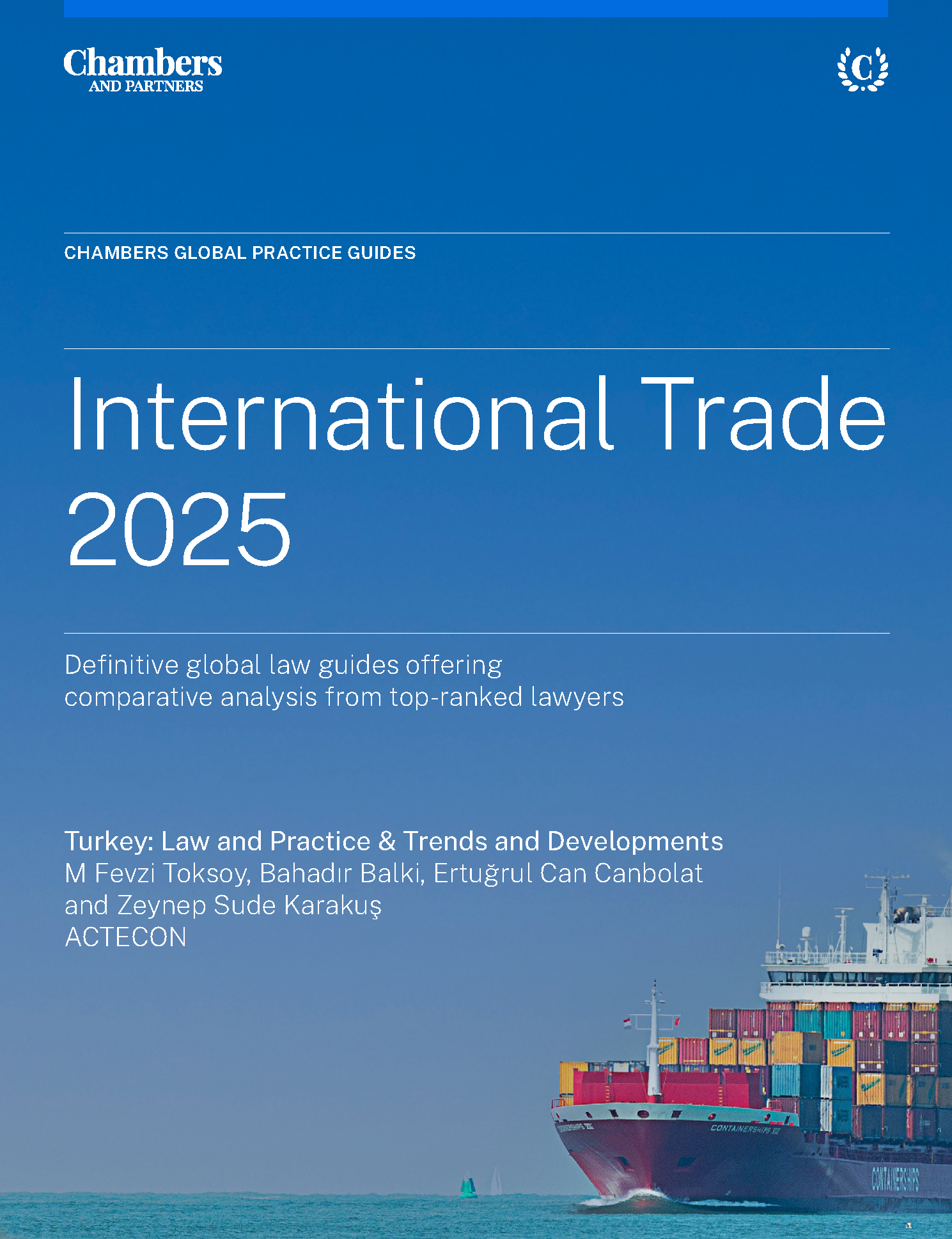Turkish Competition Authority Has Published Its Long-awaited Reason of the Google Adwords Decision
| Competition Law

Turkish Competition Authority Has Published Its Long-awaited Reason of the Google Adwords Decision
Article by Mustafa Ayna, Özlem Başıböyük, and İrem Eroğlu
Introduction
In the previous days, the Turkish Competition Authority (“TCA”) has published its reasoned decision[1] regarding the investigation conducted against Google[2]. The decision comprises of the TCA’s assessments as to whether Google had abused its dominant position, in violation of Article 6 of the Law No. 4054 on Protection of Competition (“Competition Law”), through complicating its competitors’ activities by means of its algorithm updates related to general search services and Adwords (now called as Google Ads) advertisements.
The main claim under the investigation is that Google complicates the activities of the websites which do not give advertisement in the content services markets, through creating a situation in favour of the content providers that advertise to Google by granting privilege to its text advertisements.
An Evaluation in terms of the Google Algorithm Changes to Search Results
Within the scope of the investigation, firstly, an assessment was carried out regarding the claims that Google makes algorithm changes affecting the organic search results rankings and often do not share these with the parties; this situation creates uncertainty about the rankings of the websites in terms of the organic search results; and due to this uncertainty, websites tend to more Adwords advertisements in order to ensure that they appear at the top of the search results.
Qualification and Justification of the Google Algorithm Changes: Does the Algorithm Changes Increase the Consumer Benefit?
In the decision, first of all, the qualification and justification of these algorithm changes were evaluated. In this respect, various websites have been asked about the possible purposes of the Google algorithm changes and their opinions on the expected consumer benefit from these updates.
As per these opinions, it was determined that (i) algorithm changes aim to increase user benefit and ensure that websites are designed to provide the most relevant and quality content, (ii) websites that try to manipulate general search results are eliminated through these updates, and (iii) users can reach websites that provide more relevant and quality content in higher ranks.
Effects of the Algorithm Changes on the Organic Search Results Ranking: The Algorithm Changes Create an Uncertainty on the Rankings of the Undertakings!
Secondly, the claim that Google algorithm changes cause a serious and irreparable loss in organic traffic rankings or result in completely removal from search results was evaluated.
As a result of the examinations made within this scope, it was firstly stated that the rankings of the websites in the Google general search result page can change following these algorithm updates. However, considering that there are various internal and external factors affecting the ranking, it was decided that it is not possible to conclude that the ranking changes occurring in the periods of algorithm changes directly result from the updates. Furthermore, it was stressed that the Google algorithm changes might have a positive or negative effect on the organic ranking of some of the websites as well as not having an effect at all.
Within this scope, the TCA also evaluated the claims that another way for Google to affect the organic search results ranking through algorithm changes is to punish some websites through determining them as sites with misleading content. However, the claim was not accepted by the TCA considering that there has not been any experience regarding the removal of a website from the results page on the grounds that it had misleading content (spam) due to these algorithm changes.
On the other hand, considering that approximately one third of the websites stated that the effect of the algorithm changes on the ranking and traffic of the website is not estimated since they are not aware of the date and content of the algorithm changes, it was concluded that the algorithm changes create an uncertainty on the rankings of the undertakings.
Failure to Inform about the Algorithm Changes: The Main Aim is to Prevent the Algorithms from Being Manipulated
Another claim examined within the decision is that Google does not inform about the algorithm changes. As per Google’s explanations, it was seen that Google refrains from announcing algorithms with the following reasons: (i) Google does not want to disclose its proprietary technology; (ii) algorithms are prevented from being manipulated; (iii) websites should be designed for the user, not Google; and (iv) the large number of changes makes it difficult to inform in practice. According to Google’s statements, it was understood that Google decides whether to inform about an algorithm change taking into consideration the following two issues: (i) whether the relevant update maliciously used by websites poses a risk of manipulation by making the websites appear more relevant to the algorithm and (ii) even if there is no such a risk of manipulation, whether announcing the update will benefit the websites.
In this context, even though it was determined that Google does not generally provide information about the algorithm changes, Google's statement that information is not provided about the changes that will cause the manipulation of search results was found reasonable by the TCA. Accordingly, it was evaluated that it would be appropriate for Google to continue informing about search algorithm changes that will have an impact on websites, in a way that does not cause manipulation of search results.
Does the Algorithm Changes Increase the Dependence on the Text Advertisements?
In this context, the TCA further evaluated the allegation that the Google algorithm changes create uncertainty on organic rankings and force websites to text advertisements, which are considered to be a safer area.
According to the data obtained in this regard, it was seen that the majority of websites try to make their websites suitable for algorithm changes by conducting research in order to eliminate the effects of algorithm changes, and a lesser portion of them use Adwords advertising product. The websites which declare that they prefer to use Adwords advertisements have stated that there is the risk of the results of other methods to spread over a long period of time or no results will be obtained, and for this reason, the most effective and predictable solution is to protect the amount of traffic by allocating more advertising budget.
On the other hand, although it was not considered accurate to establish a direct correlation between algorithm changes and dependency on Adwords given the data examined within the investigation, it was concluded that algorithm changes and Adwords advertisements have opposite effects on the predictability of traffic from Google. In other words, while the algorithm changes cause uncertainty in terms of the traffic, it was evaluated that Adwords advertisements are one of the methods of coping with this uncertainty by some undertakings.
An Evaluation in terms of the Text Advertisements
In addition to the foregoing allegations, the following claims was also examined within the scope of the investigation: (i) the more intense use of AdWords advertisements by Google and the way they are presented cause negative effects on the market, (ii) Google's practices that lead to brand-based advertising increase the dependency of websites on Google advertisements, and (iii) text advertising on Google might affect organic rankings.
Google is the Primary Source of Traffic for Most Websites!
In this context, the TCA firstly examined the claim that text advertisements are increasingly displaying at the top of the search results page. Within this framework, the following allegations were evaluated: (i) Google increasingly includes its own products and advertising services in the search results, and which has an effect on the websites that trade through the traffic from Google; (ii) this situation creates a perception such that the only way to do business is to advertise on Google; (iii) the fact that Adwords advertisements are at the top of the search result poses a great threat, especially for small-sized undertakings through getting into a vicious circle where they cannot advertise because they are small-sized, and they get smaller because they do not advertise and (iv) increasing dependence on Adwords has an increasing effect on the advertising budget of the websites.
As a result of the detailed examination regarding these allegations, it was concluded that (i) Google is the primary source of traffic for most websites and is vital in the manner that cannot be substituted by other traffic sources, there is an increasing dependency on Google's paid channels, and small-scale websites have relatively low traffic from text advertisements compared to higher-traffic sites due to budget constraints.
Google Creates Uncertainty About the Qualification of the Google Text Advertisements!
Within the scope of the investigation, another allegation is that Adwords advertisements are increasingly similar to organic search results due to the design changes performed by Google which results in an uncertainty for the consumers regarding the advertising results. In relation to the mentioned allegation, the TCA carried out a detailed examination on how the appearance of Google Adwords advertisements has changed over time.
In this respect, it was concluded that Google have made ambiguous the emphasis indicating the Google text advertisements over time. Furthermore, it was evaluated that this situation increases the impact of Google's actions, which were examined within the scope of the investigation. Indeed, it was stated that the way of displaying which causes the advertisement results which are not selected according to any organic search criteria to be perceived as organic traffic complicates the competition of organic search results in this field.
Assessment of the Claim that Google Encourage the Advertising on Brand Names
Within the scope of the investigation, the TCA further evaluated the claim that Google forces the websites to advertise their own brands by allowing that another undertakings give text advertisements to its registered trademarks, and thereby increasing the dependency on their advertisements. It was asserted that this situation causes both trademark holders to spend huge budgets on Google to advertise their own brands and causes unfair competition against trademark holders of other advertisers.
However, as a result of the detailed examinations, the TCA did find any violation regarding this allegation, considering the fact that the parties advertising on brand names cannot be restricted, that the practice of brand-based advertising can have a partial effect on increasing competition, and the negative effect of this application may be eliminated by other legal regulations.
Conclusion
To sum up, it was evaluated that Google violated Article 6 of the Competition Law via increasingly placing text advertisements at the top of the general search results, with an uncertain advertisement quality, through complicating the activities of the organic search results which do not yield advertising revenue in the content services market.
In this context, Google was fined TRY 196.7 million[3] (approximately EUR 19.5 million). Furthermore, the following obligations was imposed on Google:
- To be fulfilled and submitted to the TCA within 6 (six) months from the notification of the reasoned decision; to offer text advertisements at the quality, scale and/or location that will not exclude organic search results,
- to submit the compliance measures prepared by Google to the TCA one month before the granted deadline at the latest, and
- to submit a report to the TCA periodically once a year for a period of 5 (five) years from the implementation of the first compliance measure.
[1] The TCA’s dated 12.11.2020 and numbered 20-49/675-295.
[2] It is the economic entity composed of Google Reklamcılık ve Pazarlama Ltd. Şti., Google International LLC, Google LLC, Google Ireland Limited and Alphabet Inc.
[3] The calculation is based on today’s exchange rate (16.07.2021; 1 EUR = 10,08 TRY).







